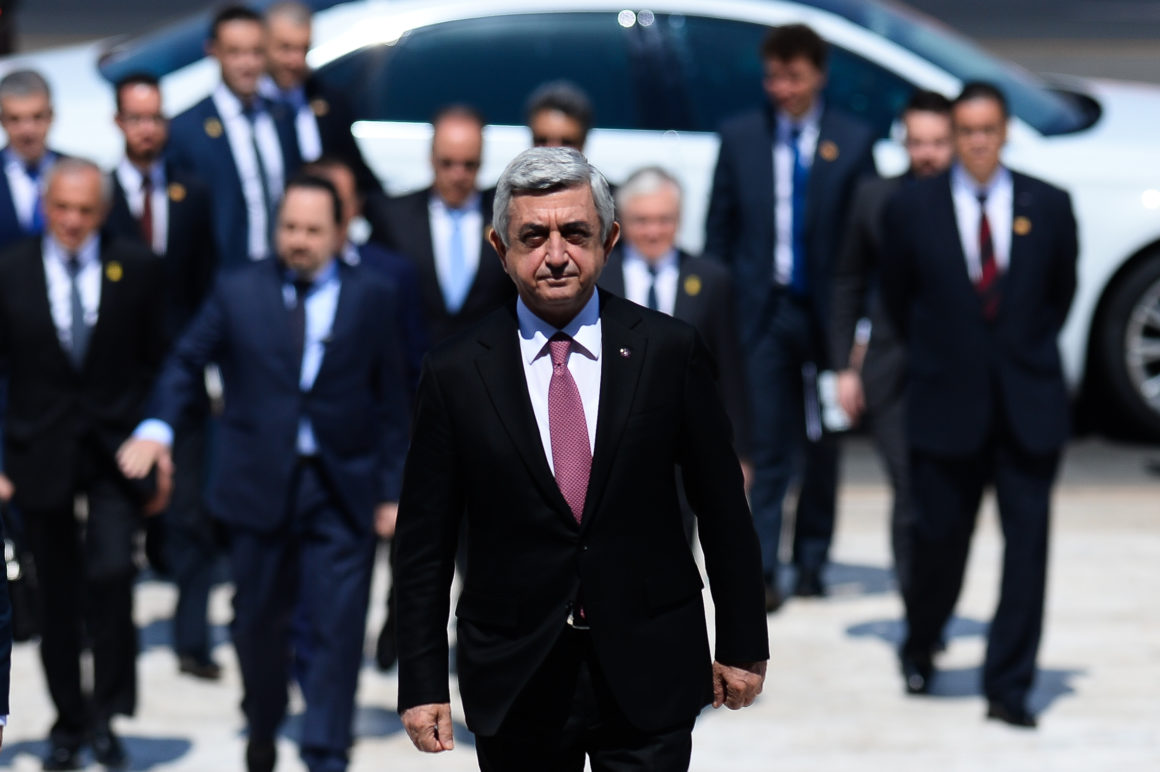
Armenian Prime Minister Serzh Sargsyan has resigned following days of large-scale street protests against him.
Opposition supporters accused Mr Sargsyan of clinging to power when he was appointed prime minister last Tuesday, soon after finishing two five-year terms as president.
“The street movement is against my tenure. I am fulfilling your demand,” he said in a statement.
It is not clear when his resignation will take effect.
The announcement came soon after opposition leader Nikol Pashinyan was released from detention. Mr Pashinyan had been arrested on Sunday after televised talks with Mr Sargsyan collapsed.
As well as Mr Pashinyan, two other opposition politicians and some 200 demonstrators were held.
In his statement, published by the Armen Press news agency, Mr Sargsyan said he was “addressing all citizens of the Republic of Armenia… for the last time as leader of the country.”
“Nikol Pashinyan was right. I was wrong,” he said. “The situation has several solutions, but I will not take any of them… I am leaving office of the country’s leader, of Prime Minister.”
Why was there such anger at Serzh Sargsyan?
He was accused of failing to address continuing tensions with Azerbaijan and Turkey, as well as widespread poverty at home.
His government has also been criticised by the opposition for its close ties to Russia, whose leader Vladimir Putin also moved between the positions of president and prime minister to maintain his grip on power.
Under Mr Sargsyan’s presidency, the country shifted from a presidential system to a parliamentary republic, vesting real power in the office of the prime minister.
He stood for prime minister after serving the maximum 10 years as president, despite promising he would not.
BBC













